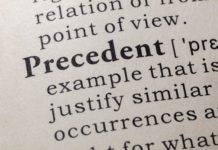Does s 501 apply to protection visas? Is PIC 4001 valid for any visas?
Federal Court: Minister found Appellant satisfied s 36 and assessed whether he should refuse protection visa under s 501 by considering consequences of decision, finding that: if granted, potential harm to AU community was "so great that any likelihood that [such harm] would occur represents" unacceptable risk; if refused, Appellant would remain in indefinite detention while Minister considered exercising discretion to grant another visa. As a result, Minister reasoned he did not need to consider consequences of removal, such as persecution. Was that reasoning flawed? Further, can it be said that: "s 36(1C) is a specific criterion applicable only to an applicant for a protection visa and it precludes the Minister using s 501(1) or its analogues as a basis to refuse to grant a protection visa"; PIC 4001 is inconsistent with ss 36(1C) or 501?
Was a decision to refuse to issue summonses “appealable”?
Federal Court: Although this case concerned a non-migration matter, it might be relevant to migration matters. Applicant applied to AAT for review of original decision. Applicant applied to AAT's Registrar to issue summonses. Registrar refused to do so and referred matter to an AAT member, who issued "Directions on Preliminary Issues" refusing the request to issue summonses. Did that direction constitute a decision under s 44(1) of the AAT Act, which would therefore be "appealable" to the FCA?
“illogical and irrational to reject the evidence”?
Federal Court: Appellant gave different accounts of his protection claims in his screening interview and later as part of protection visa application. Appellant explained that mental health issues were the reason for those different accounts and gave IAA letters from an accredited mental health social worker who had treated him, for the purpose of corroborating his explanation. IAA disbelieved his explanation and went on to say that those letters did not "overcome the significant concerns and adverse findings the Authority made about the ... appellant’s claims and evidence". Was it "illogical and irrational to reject the evidence [from mental health social worker] because it is inconsistent with a conclusion already reached with regard to the very matter that the evidence was relevant to casting light on"?
Protection claim based on suicide risk?
Federal Court: 86-year-old UK national Appellant had visa mandatorily cancelled and applied for a protection visa, claiming he had several health conditions, including a major depressive disorder. He provided a medical letter stating that, if returned to the UK, he was at high risk of suicide. He claimed he was owed complementary protection under s 36(2)(aa) in that, as a necessary and foreseeable consequence of being removed, he would suffer significant harm by being arbitrarily deprived of his life pursuant to s 36(2A)(a). Is s 36(2A)(a) restricted to the risk of being deprived of life by a third party? If so and if the UK did not prevent his suicide, would that constitute arbitrary deprivation of life? If so, did the Tribunal made a jurisdictional error in not assessing what would be the UK’s response to the risk of suicide?
Was non-adjournment an error?
Federal Court: Applicant applied to AAT for review of non-revocation of visa cancellation. Hearing was scheduled for 2 weeks before 84-day deadline. Under ss 500(6H)/(6J), AAT could not accept evidence provided in support of Applicant's case unless it had been provided in writing to Minister and AAT at least 2 business days before hearing. Applicant's partner sent AAT an email with declaration in support of his case just a few minutes before hearing. At hearing, AAT said it was precluded by law from considering partner's declaration, but did not refer to the possibility of an adjournment, for which Applicant did not apply. AAT affirmed non-revocation and its decision record gave reasons for refusal to adjourn, including s 500(6H) and 84-day deadline. Did AAT make a jurisdictional error?
MARA: important decision
Can RMAs draft statutory declarations for clients or provide them with templates? If so, to what extent? Should an RMA "doubt the information provided by ... client/s, the witnesses or the Declarants or any documents that [the RMA] has witnessed”? Does the responsibility to provide correct information lie with the person making a declaration? If a client keeps a copy of the service agreement, but the RMA does not, is the RMA entitled to payments? If "the way [an RMA] has managed [his/her] practice has proven successful over the years", does that "absolve" the RMA of his/her recording keeping obligations? Can it be said that "assisting ... clients with completing their forms and preparing their statutory declaration along with the signing of the Form 956" are sufficient to comply with cl 2.8(a), according to which RMAs must confirm client's instructions in writing?
s 36(3): backward or forward looking?
Federal Court: s 36(3) of Migration Act 1958 provides that Australia is taken not to have protection obligations if non-citizen "has not taken" all possible steps to enter & reside in any other country apart from Australia and the country where they fear persecution. AAT found that Indian Appellant had well-founded fear of persecution in India, but not Nepal. Appellant argued to AAT that, at the TOD of, he could only enter Nepal through India. Was AAT required to consider whether Appellant could or would prospectively: voluntarily return to Nepal; be removed from Australia to India? Or was AAT required to focus instead only on whether, by the TOD, Appellant had taken all possible steps to enter & reside in Nepal?
May s 473DD(a) and (b)(ii) overlap?
Federal Court: May ss 473DD(a) and (b)(ii) of the Migration Act 1958 (Cth) overlap? Further, IAA refused to consider new info, saying: "The mere fact that some of the applicant’s siblings have been granted protection on the basis the applicant claims is the same as his own claims, has no probative value when assessing the applicant’s claims for protection". Did IAA, in effect, say that "in no circumstances could evidence" relating to the siblings "have probative value when assessing the applicant’s claims for protection", thus amounting to jurisdictional error?
Tension between “appellate function” & “legislative scheme”
Federal Court: Self-represented Appellant applied to FCCA, making "reference to recognisable grounds" of judicial review, but without clearly identifying any jurisdictional errors. FCCA "generally concluded that there had been a repeated failure to 'identify any jurisdictional error'". Was FCCA's conclusion "an attempt to give content to an argument that may have some merit once properly understood"? Notice of appeal was "unhelpful". If FCA holds that FCCA provided inadequate or incomplete reasons, should it remit the matter to FCCA, differently constituted, or should it determine for itself the task of resolving the grounds of review that were before the FCCA?
Suppression order under s 37AF of FCA Act
Federal Court: FCA allowed an appeal by non-citizen Appellant, remitting the matter to AAT for reconsideration of Appellant's protection visa refusal. As Appellant could be unsuccessful at AAT again, he made interlocutory application under s 37AF of FCA Act, for suppression of aspects of the appeal orders, as he feared retaliation in Pakistan. "The issue is whether, to obtain an order, it is necessary to show that, absent an order being made, it would be probable that the person in question will suffer harm, or whether all the section requires is for the Court to be satisfied on the balance of probabilities that the order sought is necessary to protect the person’s safety". If Pakistani authorities already knew of Appellant's desertion anyway, should the suppression orders be limited to what those authorities still did not know, namely the content of his criticisms towards them?





















